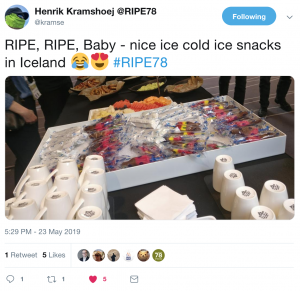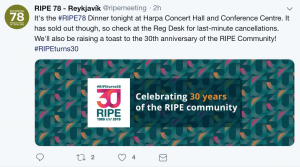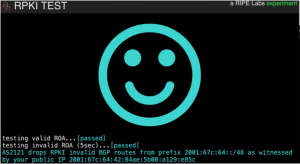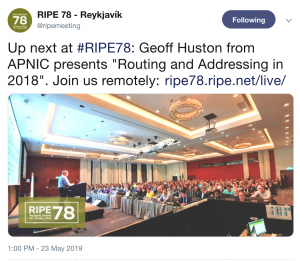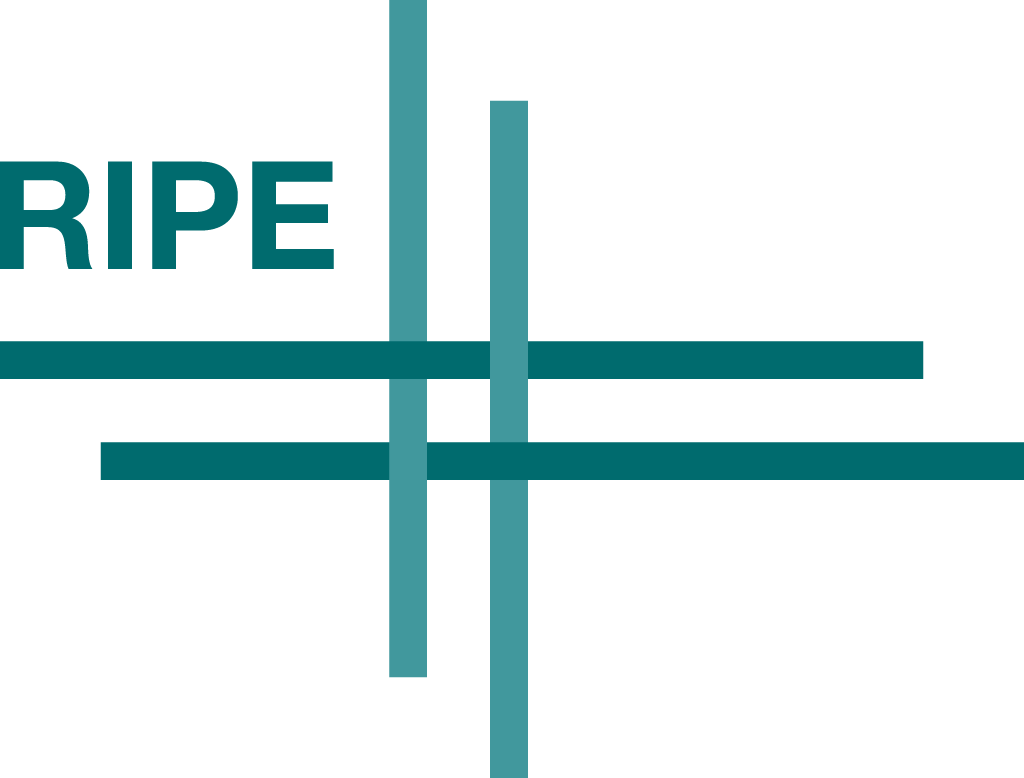Thursday at RIPE 78, another day packed with packed with parallel WG sessions. Here’s an overview of the day.
IPv6
- Two helpings of IPv6 today, the first following the usual meeting style with presentations from well known IPv6 enthusiasts such as Jan Zorz and Enno Rey, and the other taking the form of a joint session with the Routing WG after lunch.
- Jan Zorz presented the latest news about an Internet Draft being discussed at the IETF on the reaction of SLAAC to renumbering events, with a request for feedback from operators.
- Another point of discussion were the measurements presented by Geoff Huston, showing the breakage in IPv6 implementation across operators all over the World.
- Taking a deep dive into modern router architectures, we experimented with a longer session dedicated to explaining specific topics for the network operators at the RIPE Meeting. This was meant as a test to ask the audience if any more of such sessions should be held in the future. The reaction from the audience was very positive, with many people stepping up to the microphone and volunteering for future sessions.
Anti Abuse
- Angela Dall’Ara’s update on Abuse-c policy sparked discussion over whether there’s any need for a change in the current policy.
- Questions were raised about self-regulation in response to a presentation looking at policy proposal 2019-03.
- Samaneh Tajalizadehkhoob presented on a growing need for proactive detection and mitigation strategies by TLD operators and registrars.
Routing
- Geoff Huston examined how quickly routing space is growing and what his projections for future BGP FIB size are, along with a very interesting historical overview of how routing has developed over the years in his talk Routing and Addressing in 2018.
- Job Snijders spoke about RPKI and Current State of Routing Security and made creative use of his tie.
- Andrei Robachevksy called for greater transparency in routing data and invited interested community members to help him develop a prototype.
- And Chris Amin from RIPE NCC asked the audience to try out and share their feedback about the newest tool in the making – RIS Live.
- Niels ten Oever brought some offline concerns into the Routing WG with his talk on ethics in routing
IoT
- Jim Reid opened the working group informing attendees that he will be standing down as chair around this time next year.
- Patrik Fältström (Netnod) presented remotely. Jim Reid thanked Patrik for his contribution, adding that the study group was important. Reid requested the audience to approach their country’s ITU representatives, governments or regulators, and explain to them any problems they are aware of.
- Mirjam Kühne presented RIPE Atlas in the IoT WG with many audience members confirming they had an Atlas probe. Mirjam invited those who didn’t have a probe to see her colleague Michela.
Database
- Denis Walker (DB WG co-chair) proposed that it was time to think about personal data in the RIPE Database, to ensure compliance with data protection laws. There was much discussion around this, and the idea of a task force was put forward, to define the purpose of the RIPE Database. Such a purpose document would help define requirements and design of the future RIPE Database.
- Edward Shryane’s proposal to clean up locked person objects in the RIPEDatabase was well-received.
- Job Snijders talked about his policy to delete route objects in theRIPE-NONAUTH IRR if they’re in conflict with Route Origin Validation (ROA) records. There was some discussion about the hold down time for this, that perhaps 7 days was too short. Job encouraged discussion in the routing WG.
DNS
- Anand Buddhev gave an update on DNS operations at the RIPE NCC, followed by Marco Hogewoning’s talk on the ongoing efforts to clean up ENUM..
- Joao Damas shared his insights on the wrap up of the Root KSK Rollover.
- Carsten Strotmann stepped up to give two talks, the first an overview of the DNS privacy landscape and the second a look at Unwind, a local DNS resolver aimed at mobile devices.
MAT
- Massimo Candela, NTT Communications, gave an interesting presentation about measuring the Internet in the Middle East. It was received very well and people made lots of suggestions what other analyses he could include.
- Te-Yuan Huang, Netflix, presented about the buffer sizes they’re observing at Netflix. Others confirmed that her conclusions match with other similar studies. Usually small buffers result in better user experience.
- Katarzyna Wasielewska, RACI fellow from the State University of Applied Sciences in Elblag talked about her study on passive bandwidth measurements.
- Jari Arkko, Brian Trammel, IETF QUIC WG, was wondering if measurements are still possible in the era of encryption. He then gave a short update on the QUIC protocol and then showed how measurements can be done with the spin bit.
- Chris Amin, RIPE NCC, gave an update about the tools the RIPE NCC is providing. Lots of good feedback, especially about the RIS live stream. People were also interested in the possibilities to put RIPE Atlas on mobile phones.
